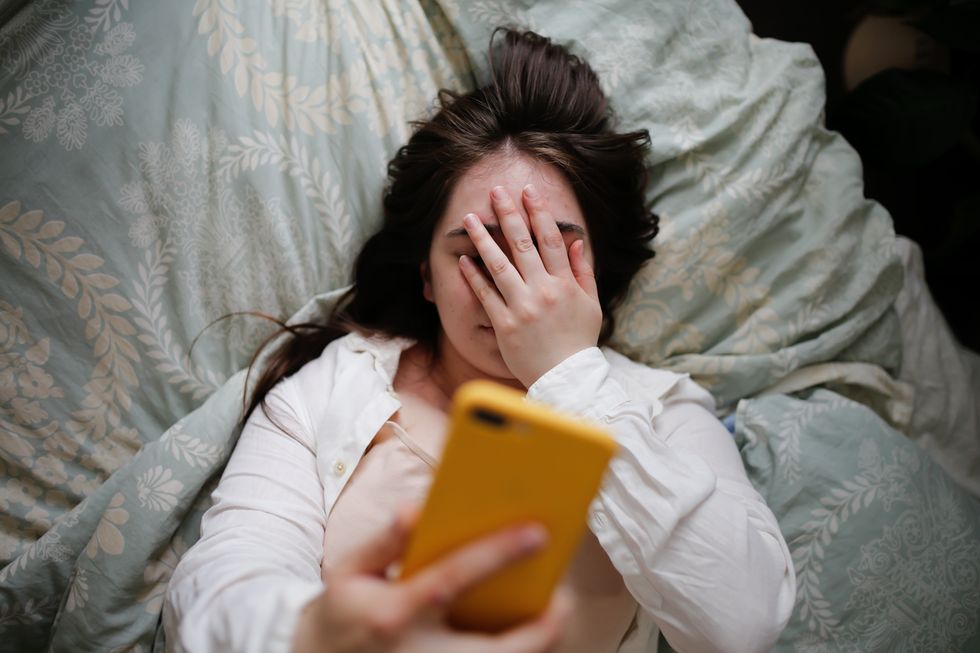Every extra hour spent staring at a screen boosts blood pressure and cholesterol, scientists warn
Insufficient sleep can compound negative effects propelled by increased screentime
Don't Miss
Most Read
Latest
Scientists have identified a concerning correlation between electronic device screen time and increased dangers of heart and metabolic conditions in a recent study.
The investigation, which tracked more than 1,000 Danish children and adolescents, revealed that increased recreational screen exposure correlates with heightened blood pressure, cholesterol levels and insulin resistance.
Published in the Journal of the American Heart Association, the startling findings indicate that every additional hour spent on devices amplifies health risks.
**ARE YOU READING THIS ON OUR APP? DOWNLOAD NOW FOR THE BEST GB NEWS EXPERIENCE**

Sleep-deprived children display worse outcomes from the same levels of screen exposure
|GETTY
To add salt to the wound, insufficient sleep can compound these negative effects, with sleep-deprived youngsters showing markedly worse outcomes from the same levels of screen exposure.
Scientists from Copenhagen Prospective Studies on Asthma in Childhood analysed data from two distinct cohorts: one comprising 10-year-olds examined in 2010 and another of 18-year-olds studied in 2000.
The investigation focused on leisure-based screen activities, encompassing television viewing, film watching, gaming and recreational use of smartphones, tablets and computers.
To assess health impacts, researchers created a comprehensive scoring system incorporating metabolic syndrome indicators including waist circumference, blood pressure readings, HDL cholesterol concentrations, triglyceride levels and glucose measurements.
LATEST DEVELOPMENTS
- Doctor issues stark warning over 2 key cancer signs people 'often put down to stress and diet'
- 'Overlooked' fruit joins superfood league as scientists lay bare benefits for cholesterol and blood pressure
- Pandemic fears soar after China imposes Covid-style quarantines on thousands - travel warning issued
This composite metric, adjusted for participants' age and sex, quantified each individual's cardiovascular risk relative to their peer group's average.
The research revealed that every additional hour of recreational screen exposure raised the cardiovascular risk score by approximately 0.08 standard deviations among 10-year-olds and 0.13 standard deviations in the 18-year-old cohort.
Lead researcher Dr David Horner from the University of Copenhagen explained: "This means a child with three extra hours of screen time a day would have roughly a quarter to half a standard-deviation higher risk than their peers.

If cutting down on screentime is too difficult, try and get to bed earlier
|GETTY
"It's a small change per hour, but when screen time accumulates to three, five or even six hours a day, as we saw in many adolescents, that adds up."
Giving a few words of advice, Amanda Marma Perak, who chairs the American Heart Association's Young Hearts Cardiovascular Disease Prevention Committee, recommended prioritising earlier bedtimes.
Weighing in on the matter, she advised: "If cutting back on screen time feels difficult, start by moving screentime earlier and focusing on getting into bed earlier and for longer."











